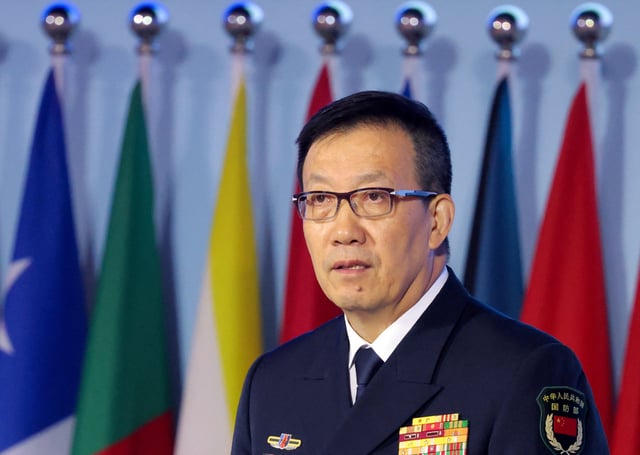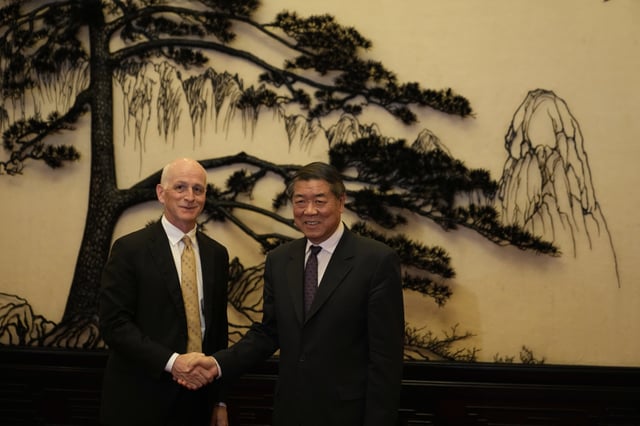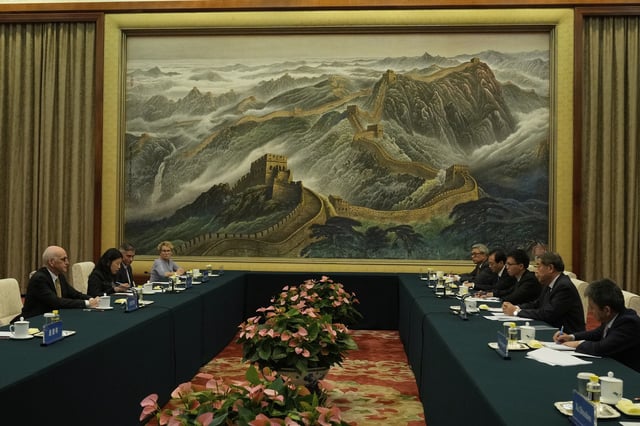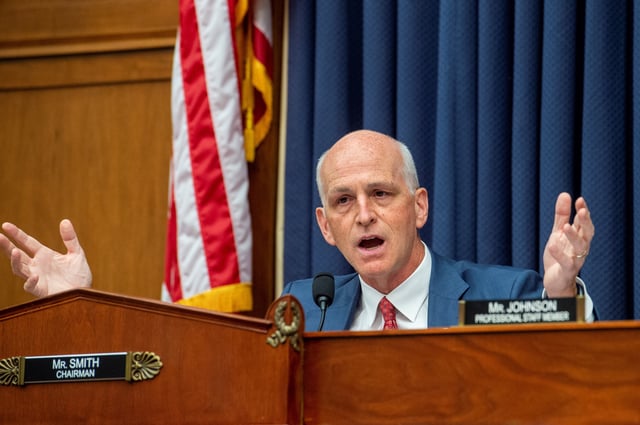Overview
- Rep. Adam Smith led a bipartisan group that met Premier Li Qiang, Defence Minister Dong Jun and Vice Premier He Lifeng, marking the first House visit to China in six years.
- Li described the trip as an icebreaking step, while Smith pressed to open direct lines between the two militaries and Dong called the moment a good phase for strengthening communications.
- The delegation also includes Reps. Ro Khanna, Chrissy Houlahan and Michael Baumgartner, and is scheduled to remain in China until Thursday.
- The outreach follows a Trump–Xi phone call, with Trump saying they plan to meet at a regional summit in South Korea at the end of October and to exchange visits in 2026, according to public statements.
- The push for steadier contact comes after military ties were suspended following Nancy Pelosi’s 2022 Taiwan visit and restored in November 2023, with broader tensions spanning trade, chip controls, TikTok, the South China Sea and Taiwan.



